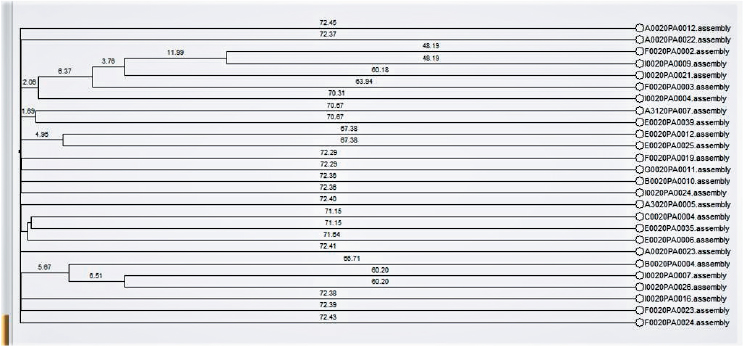Current Prevalence of the crpP Gene in Carbapenemase-Producing Pseudomonas aeruginosa Blood Isolates in Korea
1Department of Laboratory Medicine, Yonsei University College of Medicine, Seoul
2Department of Laboratory Medicine, National Health Insurance Service Ilsan Hospital, Goyang
3Research Institute of Bacterial Resistance, Yonsei University College of Medicine, Seoul
4Department of Laboratory Medicine, Chonnam National University Medical School, Gwangju
5Department of Laboratory Medicine, Chungbuk National University College of Medicine, Cheongju
6Department of Laboratory Medicine and Paik Institute for Clinical Research, Inje University College of Medicine, Busan
7Department of Laboratory Medicine, Jeju National University, College of Medicine, Jeju
8Department of Laboratory Medicine, Hallym University Dongtan Sacred Heart Hospital, Hallym University College of Medicine, Hwaseong
9Department of Laboratory Medicine, Yonsei University Wonju College of Medicine, Wonju
10Department of Laboratory Medicine, Keimyung University School of Medicine, Daegu, Korea
ABSTRACT
Background: Recently, crpP enzymes have been described as a novel cause of ciprofloxacin resistance. The crpP gene encodes a novel protein that specifically confers resistance to ciprofloxacin through an adenosine triphosphate-dependent mechanism that phosphorylates the antimicrobial. In this study, the current prevalence of the crpP gene in carbapenemase-producing Pseudomonas aeruginosa blood isolates was evaluated.
Methods: During the study of the Antimicrobial Resistance Surveillance System in Korea, 22 blood isolates of carbapenemase-producing P. aeruginosa were collected from nine general hospitals and two nursing homes in the year 2020. Resistance genes and phylogenic trees were analyzed with the whole genome sequencing data.
Results: A total of 11 P. aeruginosa blood isolates coharbored the crpP and carbapenemase genes (nine IMP-6 producers and two GES-5-producers). Nine NDM-1-producers coharbored aac(6′)-Ib-cr and qnrVC1. One GES-9-producer also carried aac(6′)-Ib-cr, and one NDM-1-producer also carried qnrVC1. The phylogenic tree showed no epidemiologic link among the 22 carbapenemase-producing P. aeruginosa isolates.
Conclusion: This is the first report on the current prevalence of the crpP gene in carbapenemase-producing P. aeruginosa blood isolates in Korea.
Keywords
Fluoroquinolone, Resistance, crpP gene, Pseudomonas aeruginosa
Figures & Tables

Fig. 1. Phylogenic tree of 22 carbapenemase-producing Pseudomonas aeruginosa strains based on whole genome multilocus sequence typing. Dendrogram was generaetd with BioNumerics software
